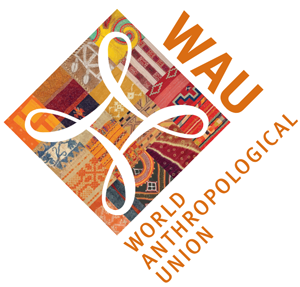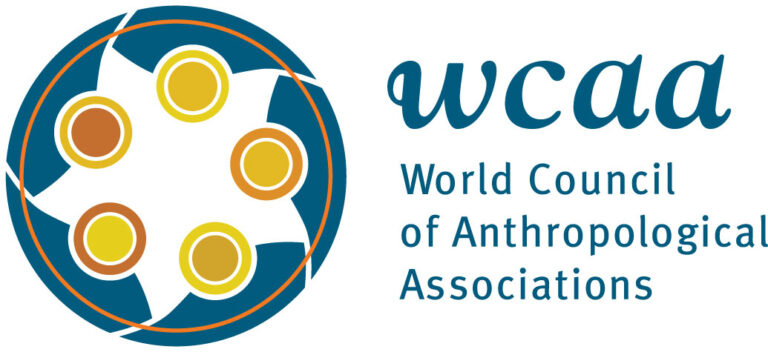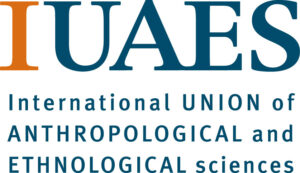Brief essay on Interviews with Journal Editors for Déjà Lu
March 25, 2022
For the tenth anniversary issue of Déjà Lu, we four editors—Gordon Mathews, Lía Ferrero, Joy Owen, and Leilah Vevaina—have interviewed editors of different journals featured in Déjà Lu. We had intended to interview all editors, but soon found that we lacked the capacity to do this, since we were interviewing and for the most part transcribing and translating these interviews ourselves; we reached out to those editors who responded to us most readily. In this issue, we have interviews with 17 editors, some 1/3 of the editors of the journals appearing in Déjà Lu. These editors come from around the world: from Latin America, Europe, North America, East Asia, Southeast Asia, and Africa. The questions we asked editors varied, but were based on these common themes: “Who publishes in your journal? In what languages? Who finances your journal? What topics define your journal? Describe the editorial process. What criteria do you have to accept an article? Do you have a referee system? It’s said that there is an Anglo-American core of journals that dominates global anthropological publication. Does that have any impact on your journal?”
A full analysis of anthropological journals worldwide in their procedures has yet to be written. But in this very brief synopsis, we can outline a few major themes:
–Some half of the journals whose editors we interviewed are now open access, often those based in Latin America using the OJS system (Open Journal Systems: open-source software for managing and publishing academic journals), with some European and American-based journals also using OJS and being open-access. Several of the editors of journals published by commercial presses said that their publishers may eventually become open access. Some of the journals whose editors we interviewed also had a print edition, but others did not, with the general feeling being that paper was on the way out. Most journals had an on-line platform whereby prospective articles were submitted; many journal editors reported that these were user-unfriendly, but that editors had little control over the design of these platforms. An advantage of on-line publication was that journals’ past volumes could be readily uploaded and archived; they would not decay as paper decayed. However, a misunderstanding about on-line publication was that it could easily lead to open access; copy-editing and proofreading cost as much money on-line as they do for a print journal, and money was a potential problem for most of the journals whose editors we interviewed. There was also additional expense for many journals—obtaining a DOI (Digital Object Identifier), for example, is not free; for a cash-strapped journal, this may be too expensive to obtain.
–Financing for journals is often very difficult. In some cases it may come through national grants, which may not be permanent. In other cases it may come through particular departments (Latin America in particular in these interviews, but also the United Kingdom) or national associations for journals that represent their national association, such as in journals from Italy, Korea, Finland, Uruguay and the United States in this selection of interviews. Larger national associations obviously were able to provide more financing for journals that smaller associations. The most fortunate situation for any journal here profiled was that of a popular anthropology journal in the United States that was funded by a large foundation and able to professionally pay its staff. For a few other journals, editors could get teaching relief to carry out their editorial responsibilities. For most other journals, editors received no recompense in time or in money. Editors had an almost universal complaint that their work as editors was not sufficiently recognized; while their own research grants and publications would bring them career advancement, their work as editors did not help their careers.
–Almost all journals whose editors we interviewed used a double-blind peer-review process. Many said there was difficulty in finding reviewers. All said that they used reviewers from different societies rather than only from the society the journal was based in, but this was dependent upon language. A major difficulty that many journals faced was in finding referees, particularly in a time of Covid-19, when increasing numbers of potential referees have declined to engage in refereeing. In journals in smaller societies, finding referees and engaging in double-blind refereeing could be very difficult, since a very small number of scholars studied a given topic and their identities were not difficult to guess.
–Journals in Latin America were able to use Spanish or Portuguese or both and not so much English; there is such a large Latin American presence in anthropology that they could be confident in a broad readership. Journals in other parts of the world, such as East Asia, used their national language, but sometimes had trouble in obtaining submissions, if there was large pressure among anthropologists in their society to publish in English. The European journals whose editors we interviewed have journals in English or published in multiple languages. The attitude expressed by some editors insisting on English was, broadly, “if you want to communicate with the world beyond your own country, you have to use English”; others did not hold this view. A number of editors emphasized the importance of multilingualism in their journals, for the sake of anthropological diversity, but this required expertise in different languages that many journals did not have.
–Many journal editors have strong views concerning indexing: belonging to citation indexes that give them accreditation. There are Latin-American and European citation indexes such as Latindex and Redalyc; but the best known of these indexes globally are Web of Science, Scopus and the Social Science Citation Index. Many journal editors resented what they saw as this Anglo-American-centered indexing, but others were resigned to it, accepting that their own journals did not qualify for various reasons; those that were within these indexes readily accepted this accreditation. Editors in the most well-known North American journals insisted that they were not gatekeepers towards global anthropology, and that they were expanding their international presence through editorial board memberships. North American journal editors said that they were increasingly international in their editorial boards, authors, and readership. As their editors were well aware, however, publication in their journals brought maximum prestige and promotion to their global authors, and so that structurally they could hardly avoid being gatekeepers.
–There is a great gap between well-off journals, with many submissions, and those with few submissions that need to scramble to find enough acceptable articles. Because of citation indexes playing an increasing role in promotion, these top journals are flooded with submissions, as many other more regional journals are not. For a very famous journal, the chance of eventual acceptance of a submitted article might be 10-15%, but for a lesser-known regional journal, the chance of eventual acceptance might be 50-60-70%. For a lesser-known regional journal, there is a far greater likelihood that an editor will work with an author to make a paper eventually publishable, rather than rejecting the article. Details for different journals can be found in many of the interviews with editors, but it does seem lesser-known journals often offer considerable guidance to authors, because they are eager to obtain articles they deem publishable.
These findings are partial, not least because only a third of the journals appearing in Déjà Lu have editors whom we have yet interviewed—no doubt many other views will emerge in the future, if interviews continue. However, the interviews that are presented in the pages that follow give a fascinating and diverse set of views as to how anthropological journals around the world function. Have a look at them!
Best regards,
Gordon Mathews, Lía Ferrero, Joy Owen, and Leilah Vevaina



